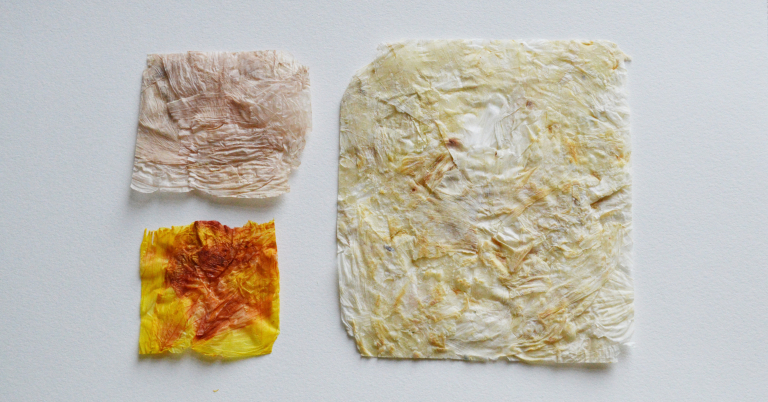A closed loop scalable ecosystem for the local community, based on a waste-onion skin material.
Long description
HUID is a project that aims to create a local closed loop ecosystem with a biobased material at its core. It achieves this by using a food waste stream (namely onion and garlic skins) to create a bio-based material for packaging that can aid in circumventing plastic usage.
Onions are fairly ubiquitous around the world, their skins often destined for compost. The intervention of using such a common material prevents further plastic usage that can be implemented on a local level in worldwide, while only delaying the onion skin’s journey to the compost pile for a short while.
By-products involved in the production of HUID can also be recycled back into the local community as a textile dye for artisanal/community workshops, or as the base of a nutritional vegetable stock to be used at a soup kitchen. Local businesses would be able to collaborate with HUID to their bespoke requirements without having the hindrance of large minimum order quantities and standardized stock of globalized production systems.
The binders used in the material are sourced from dairy waste – also in development to look into a lab made alternative with more of the population moving towards veganism – and a plentiful food-grade seaweed derivative. Ultimately, the ecosystem created around HUID is vital; it allows for the public to engage with the entire development process from waste to material – perhaps inspiring more collective action to support the initiative and in turn creating a paradigm shift of the value of waste.







Please login or create a profile to view comments